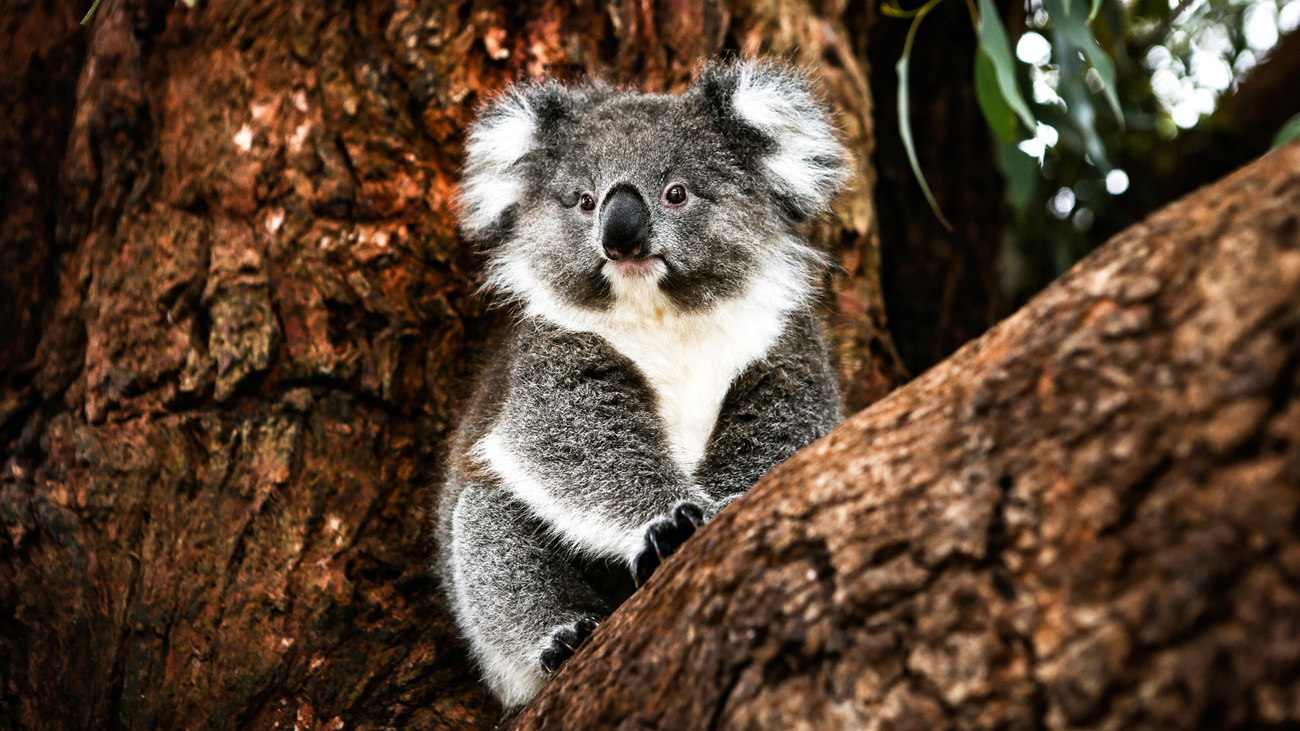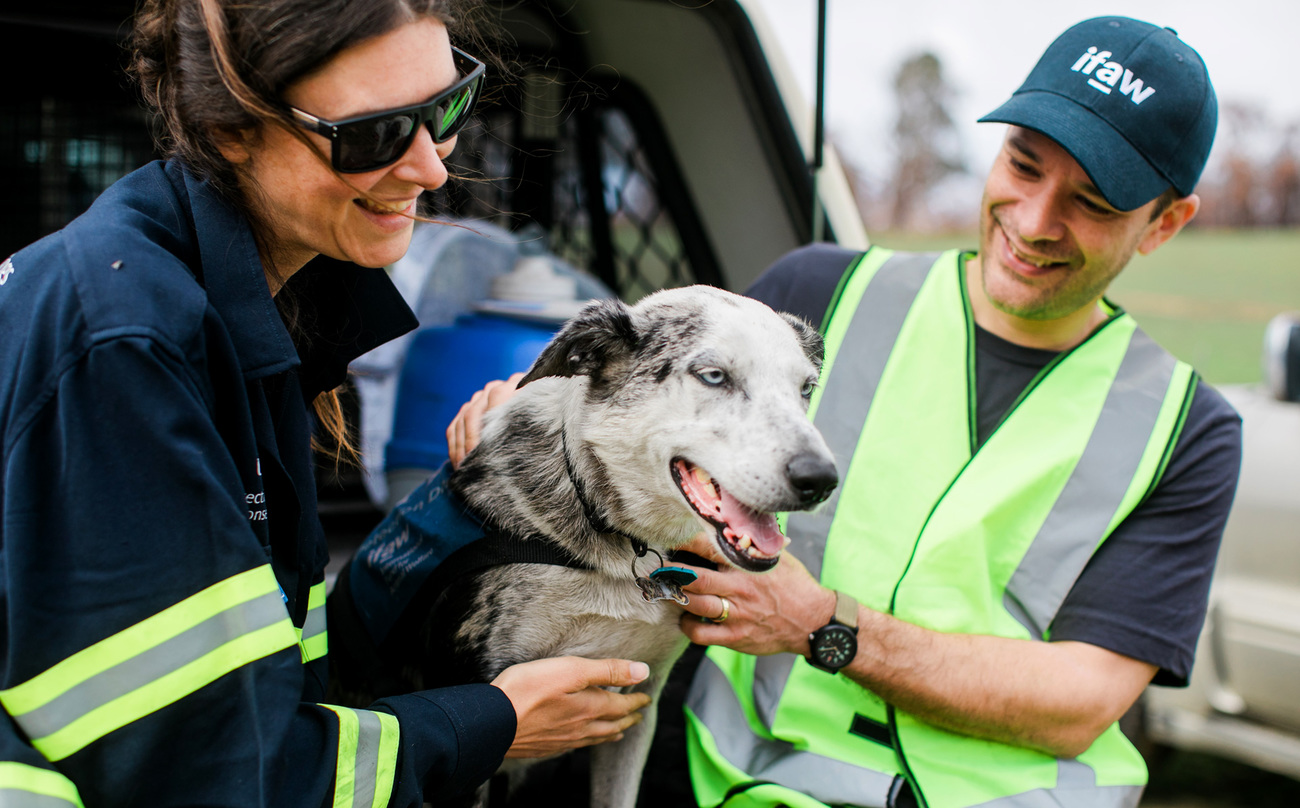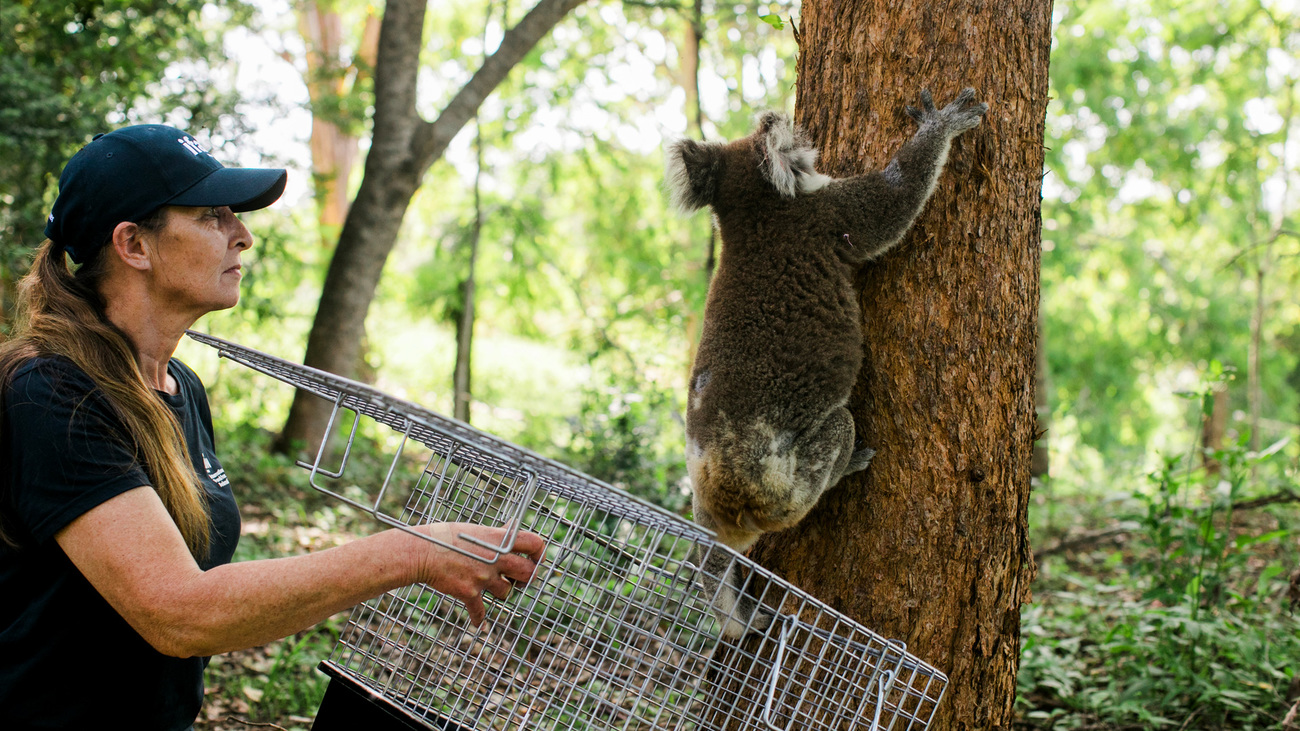Koala Protection: Rescue, Rehabilitate, Release, and Secure - Australia, New South Wales
Planting a future for koalas, one tree at a timeEvery koala matters: recognising the value of individual animals
Every koala matters: recognising the value of individual animals
Conservation often focuses on survival of a species, and while this is important, it is underpinned by an indisputable fact: individual animals matter. You need look no further than the plight of koalas in the aftermath of Black Summer as proof. When populations approach a tipping point, the survival of a single animal can be the difference between existence and extinction.

At IFAW we believe every animal has intrinsic worth, sentience, and dignity. It drives our work, as we know that rescuing and protecting individual animals helps sustain entire ecosystems. Nature is interconnected; if animals thrive, so do we.
Koalas on the precipice
The fires that ravaged Australia in 2019 and 2020 were catastrophic for our koala population, which was already facing systemic threats such as habitat loss and disease. Black Summer pushed our national icon to the brink, and a new level of intervention was required to save them.
The situation for koalas during Black Summer was indicative of the crisis facing all our wildlife. We recognised the need for a more cohesive and coordinated approach to ensure the timely rescue and treatment of sick, injured, and orphaned wildlife in the immediate aftermath of bushfires.
Additionally, there was a pressing need to boost the capacity and training of veterinarians in wildlife care. The scale of the crisis highlighted that many of these professionals lacked the necessary knowledge and resources to respond as effectively as they would have liked.
Swift, coordinated response
Working alongside trusted partners allowed us to respond to the mounting needs swiftly. IFAW deployed trained responders to support on-the-ground rescue and critical care efforts, provided support for veterinary hospitals, and delivered critical resources for frontline rescue teams.
Our long-standing partnership with University of the Sunshine Coast’s (UniSC) Detection Dogs for Conservation (DDC) enabled IFAW x UniSC trained koala detection dog Bear to use his remarkable nose to find more than 100 koalas in charred landscapes. This deployment was groundbreaking and featured in the documentary Bear: Koala Hero.

One property where we worked with the DDC team was Two Thumbs Wildlife Sanctuary in southern NSW, owned by James Fitzgerald. On 23 January, at the height of Black Summer, fire swept through the property, destroying James’ house, the sanctuary, and the wildlife that called it home. Compounding the tragedy, three US firefighters aboard a firefighting aircraft tragically died after their plane crashed while trying to put out the flames.
Since that tragic day, James has been on a mission to save as many animals as possible. Team Bear joined ‘black walks’ of the firegrounds and was able to locate and rescue eight koalas including mum and joey Jessie and Amelia and surprise bub Jazz, bringing a glimmer of hope amidst the devastation.
Then, only a year later, many of the fire-affected regions were hit by catastrophic floods before the landscape and communities had a chance to fully recover from Black Summer. IFAW offered support to dozens of individual wildlife carers and rescue groups by donating critical resources such as incubators, heaters, and food. Our long-standing relationships with rescue groups and governments allowed us to provide assistance and resources where they were needed. And this support was needed yet again, almost exactly one year later, after another slew of flooding.
Expanding veterinary capacity
Alongside these rescue efforts, we worked to build veterinary capacity to help treat the influx of injured wildlife across the country, providing essential funding and support.
We sponsored a full-time veterinary team at our long-term partner Friends of the Koala, which enabled them to become a licenced hospital, increasing their capacity to treat hundreds of koalas on site every year.
In Tasmania, our support allowed our other long-term partner Bonorong Wildlife Sanctuary and Hospital to expand its veterinary team capacity, enabling them to care for more than 6,000 animals since the fires.
Through similar partnerships with 13 groups across Australia, including Mosswood Wildlife in Victoria, WA Wildlife in Western Australia, and Byron Bay Wildlife Hospital in the Northern Rivers region of New South Wales, we have been able to boost capacity, support critical treatment and care, and save thousands of lives.
The bigger picture
The rescue, rehabilitation, and release of individual animals is about much more than saving a life—it is ultimately also about restoring ecosystems and protecting biodiversity.

By strengthening rescue networks and providing essential veterinary care, we are helping to ensure species such as koalas have a fighting chance, one animal at a time.
However, to make a fundamental difference to wildlife and the people who care for them, our governments must urgently address the root cause of the challenges, rather than just the symptoms. Species face increased threats brought by climate change such as more intense and frequent bushfires on top of already compounding threats of disease, vehicle strikes, and the continued loss and fragmentation of habitats.
Maintenance and restoration of crucial wildlife corridors across the landscape, halting runaway land clearing, and finally ending native forest logging is essential if pressures on our native wildlife are to be alleviated. We also need critical investment in prevention measures, such as investing in wildlife-friendly developments and infrastructure design, including wildlife crossings over highways.
We will continue to advocate for these measures and provide ongoing support for Australia’s wildlife sector, because it comes down to one simple belief: every animal matters.
Related content
Our work can’t get done without you. Please give what you can to help animals thrive.